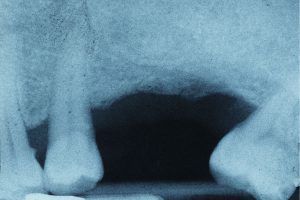General Dentistry in Georgetown
General dentistry services offered by your Georgetown dentist.
The majority of dental treatments are performed to treat or prevent the two most common oral diseases: tooth decay and periodontal disease (gum disease).
Common treatments include the restoration of teeth with dental fillings, extraction or surgical removal of teeth which cannot be restored, scaling of teeth to treat periodontal problems. But general dentistry includes a lot more than that, and dental professionals unanimously encourage prevention of oral diseases by regularly scheduling checkups for professional cleaning and evaluation every six to nine months.
Keep reading below for descriptions of our general dentistry services.
Come meet your local Georgetown Dentist
You deserve a happy dental experience, we want to help. Call us today at (905) 877-2273 for our assistance.
Family Dentistry
 A child’s mouth is not just a smaller version of an adult’s mouth. It’s important to assess the health and development of a child’s teeth to prevent problems and ensure a healthy smile.
A child’s mouth is not just a smaller version of an adult’s mouth. It’s important to assess the health and development of a child’s teeth to prevent problems and ensure a healthy smile.
The Canadian Dental Association recommends a child have their first visit within 6 months after the eruption of their first tooth.
Education and early detection is the key to having a positive experience for your child at the dentist.
Hygiene
Oral hygiene is the practice of keeping the mouth and teeth clean in order to prevent dental problems, such as cavities, gingivitis, and bad breath.
Regular oral hygiene appointments at your dental clinic should be scheduled every six months. These appointments should include an oral exam and teeth cleaning.
Teeth cleaning is the removal of dental plaque and tartar from teeth to prevent cavities, gingivitis, and gum disease.
Teeth Extraction
With all the modern advances in dental treatment, it is best to try and save your teeth. However, circumstances may arise that require the extraction of hopeless teeth. Orthodontic treatment of crowded teeth may also require extractions.
 We will ensure that the extraction process is as comfortable as possible. Once profound anesthesia is achieved, the tooth will be removed. Instructions will be given to ensure proper post-operative care and a speedy recovery.
We will ensure that the extraction process is as comfortable as possible. Once profound anesthesia is achieved, the tooth will be removed. Instructions will be given to ensure proper post-operative care and a speedy recovery.
Removing a tooth could lead to the shifting of neighbouring teeth, resulting in problems with chewing and joint function. Of course, loss of a front tooth is also an aesthetic concern. We will also be happy to discuss different ways a missing tooth can be replaced.
Wisdom Teeth Extraction
Your last molars, called the third molars or wisdom teeth, typically begin to come in (erupt) during the late teen years or early twenties. When they don’t have room to grow in, or they’re trapped in your jaw because they are tilted or rotated, they are impacted.
An impacted wisdom tooth can cause pain, infection and tooth damage
- As your wisdom tooth tries to erupt at an angle, it can push on the neighbouring tooth, causing pain and possibly damaging the tooth.
- Food gets trapped next to the wisdom tooth, making the area a breeding ground for the bacteria that cause decay and periodontal (gum) disease.
- An infection may develop around the impacted tooth, and this infection can spread into the face and jaw.
- Your jaw may become painful and the surrounding gums may swell and become tender.
- A fluid-filled sac called a cyst may develop around the impacted tooth; this can destroy a great deal of jaw bone.
Early removal can prevent problems
You can avoid the pain and possible damaging effects of an impacted wisdom tooth by having it removed early, before its roots are fully developed. We can monitor the development of your wisdom teeth with x-rays, and remove them as soon as we determine they will likely cause difficulties.
Night Guards
Bruxism (teeth grinding) is an involuntary grinding or clenching of your teeth, and usually occurs while you sleep. Grinding your teeth can create a great deal of force on your jaw, which can cause damage to your teeth and jaw joints. Most often the cause of grinding is stress related but can also be caused by the misalignment of you teeth.
Some symptoms of grinding include sore jaw muscles, headaches and neck or ear pain. Although for most people it is the dentist that will see the wear on you teeth and warn you of grinding. If you have restless, interrupted sleep, a professionally made nightguard may be the answer to a full nights rest!
A night guard can help protect your teeth from the harmful effects of grinding and clenching and prevent further damage. A night guard is custom made to fit over your upper or lower teeth, preventing the teeth from grinding together and allowing your jaw joints to be positioned in the most relaxed state. Different types of Night Guards can be made based on your needs, whether you require TMJ therapy, grinding/clenching, or even have sleep apnea. Ask our experienced team of dentists which type is best for you.
Come meet your local Georgetown Dentist
You deserve a happy dental experience, we want to help. Call us today at (905) 877-2273 for our assistance.
